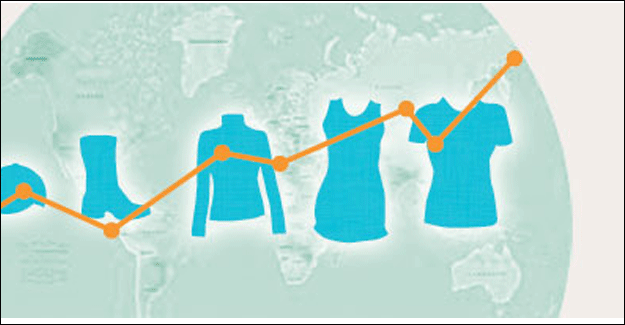
Conflict Between Sustainability And Pricing Keep the Global Apparel Markets Guessing
As moves to stabilize sustainable growth and production of garments and apparels are afoot across the globe, an air of uncertainty does prevail on the issue of sourcing garments with conflict of interests between ethical correctness and attractive pricing.
Apparel brands globally are keen on keeping their supply chains clean and maintain sustainably produced garments. However, cleaning up the supply chain is not the only focus area. There are other considerations too which create an aura of confusion when it comes to making decisions on sourcing for the global brands.
For example, sourcing from Africa has caught up following the hike in labor and production costs in Chinese textiles. The African nations which have jumped into the textile export bandwagon have currently succeeded in altering consumption patterns globally. Needless to say, global buyers feel drawn to the African market in view of attractive pricing.
Similar to what’s happening in Africa, Britain too is witnessing a sea change in its textile manufacturing sector. However, post Brexit, the industry in Britain has turned increasingly dependent on government support to keep the kettle boiling.
Under the circumstances, a fresh ratings platform has been designed to ascertain the ground reports from the garment suppliers on the buying pattern of their customers. The design of the fresh platform is aimed at earmarking adaptation of good practices and enunciating improvements to enhance setting up of more humane working conditions.
Interestingly, in a short span of six months from now, the Alliance for Bangladesh Worker Safety arrives at a crucial decision-making point. The decision will depend on adherence to safety norms by the textile factories set up in Bangladesh. Country Director of the Alliance, Jim Moriarty has expressed confidence that compliance to worker safety norms will by and large be established in most factories. He backed his confidence towards achieving this goal by pronouncing the setting up of a new safety organization in Bangladesh.
However, according to the government body instituted in Bangladesh, Accord on Fire and Building Safety, “There are yet too many factories that are faced with safety concerns that are largely life-threatening.” Despite the anomaly, the government body expressed the hope that things will be sorted out by the deadline given of May 2018. To provide relief and ease the situation, the government of Bangladesh has taken assistance from World Bank for setting up infrastructure projects that will be privately funded. The assistance which comes in the form of financial agreements is also expected to diversify the export basket of Bangladesh.
Even as Bangladesh is keeping up its struggle for remaining in contention for sourcing garments, the Asian textile giant China’s Wuxi No. 1 Cotton Mill has taken initiative to boost the Ethiopian textile market by signing an agreement to set up an integrated textile park in the country.
Textile Excellence
If you wish to Subscribe to Textile Excellence Print Edition, kindly fill in the below form and we shall get back to you with details.












